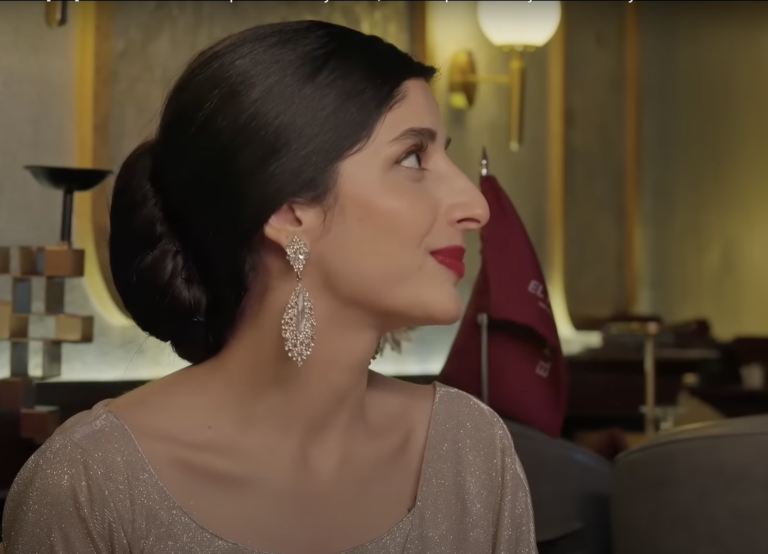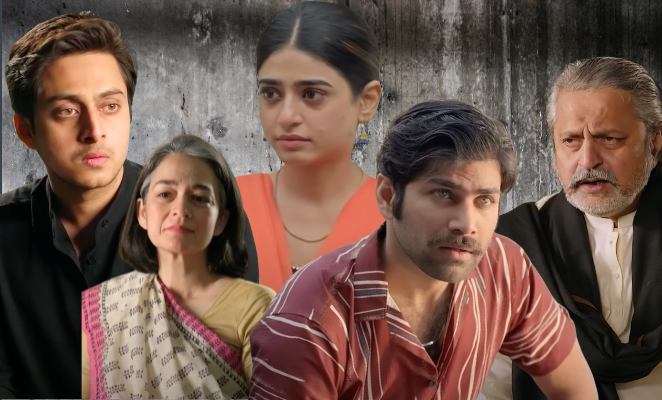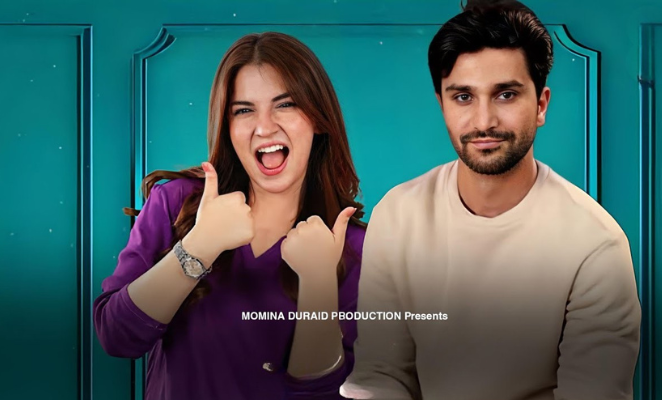Main bhikari nahin hoon
Main ne kabhi kisi se kuch nahin maanga
After have gotten her Prince Charming, followed by a lovely wedding, and now living a blissful life in her beautiful castle, Falak might be forgiven for thinking that she is now a central character in her own little fairy tale. Lulled into what is sadly destined to be a temporary sense of security, floored by Salman’s open appreciation [finally!!] and swept away by his charm, Falak has chosen to forget past insecurities vis-à-vis Salman, her dismay over his arrogance and boorishness all purposefully swept under the metaphorical rug, out of sight, out of mind. The fact that at one point she was so driven to despair that she asked her maid for a taveez, to win Salman’s affections, is something she has willed herself to forget, and honestly speaking who among us would want to keep reminding ourselves of the unpleasantness of the past. It’s easier to move on – forgive and forget is what we’ve been taught from day one. But, hold on, what makes Falak different here is that, she has not just forgiven and forgotten, but she’s actually relishing all that she has now as her due right. It is this precise na-shukri wala attitude that naani has been trying to warn her against from day one, and this is what the faqir reiterates as well. But Falak, of course being the Falak that she is, is in complete denial that there was ever a point where she had actually desperately wished and asked for anything, hence her confident avowal: main ne kabhi kisi se kuch nahin maanga!
No matter how much of a Falak, Falak was being, it was lovely to see the warm interactions between Falak and Salman. His palpable excitement at the coming baby, as evidenced by his involvement with the decoration of the nursery, was a well-done subtle touch highlighting his emotional investment in this relationship, no matter how it might have started out. I am so glad that time was spent in establishing this switch in the nature of the relationship between our two protagonists, laying the foundation for the stark contrast in Salman’s behavior as it starts changing from the next episode onwards. Falak’s conversation with Rushna went a long way towards establishing Falak’s bury-her-head-in-the-sand attitude, and also answered the question regarding Hamza being MIA at Falak’s wedding – he was in Dubai.
The phone call between Falak and Hamza was illuminating to say the least – truly Shehr-e Zaat is a story of mirrors and reflections. Even as Hamza was being spurned by Falak, who remained unaware of his romantic interest till he proposed to her, he too was unknowingly spurning someone else’s love, because he was so enamored by Falak. Now, with Falak married and therefore out of reach, he was able to see this other girl in a different light, with the result that he is now distributing wedding cards to friends. It was interesting to see Falak contrasting her love for Salman with that of Hamza’s for her. Now that she is sitting pretty and secure, it is easy for her to say she would’ve died if she wouldn’t have gotten Salman. These lines gave me a pause and had me wondering – we make such big declarations so easily and glibly… is life that easy to take? Can we take away something that we are unable to give in the first place?
The scenes between naani and Falak and Mehrunissa have to be some of the most tenderly done scenes I have seen in recent times. The bonding between the three women, their small, almost unnoticeable, gestures of affection: Mehrunissa rubbing lotion on her mother’s hands, Falak carrying naani’s heavy handbag while showing off her house, were so beautifully done that it’s hard to remember that this all fiction. I loved the way Mehrunissa excitedly shared her daughter’s good news with her mother. Similarly, Falak’s unabashed delight at having naani visit her house was an absolute treat to watch. An unexpected bonus was the visible joy that naani expressed at Falak’s desire to have a daughter. Loved the fact that she didn’t berate Falak for not praying for her firstborn to be a boy; a minute detail, but so vitally important that such messages are continually reinforced. Samina Pirzada, Hina Bayat, and Mahira Khan must be related somewhere up there, because such chemistry is almost never seen. Kudos to all for giving us these magical moments to savor!
Finally, the iconic scene that we’d all been waiting for since the first promos aired. Needless to say it lived up to all my expectations and beyond. Munawar Saeed is a class act and he pulled off this scene impeccably and delivered the meaningful lines beautifully. I only wish this scene had been trimmed a bit off at the end, leaving more of an impact on the viewers. This minor peeve aside, I thoroughly enjoyed the way Falak’s lofty claims, her being an artist with the ability to see beauty even in gandagi, were immediately challenged by the shot of the muddy water and the fakir making mud balls, lovely use of the dialogues and the visuals to add that extra layer of meaning. Add to that the OST lyrics in the background, about the yaar being omnipresent, juxtapositioning Falak’s majazi yaar who is zahir, with the faqir’s haqiqi yaar who is chupa, and you have a sequence elevated beyond the realm of the ordinary. Definitely a scene I will go back to again and again to decipher the layers of meanings. Excellently done Sarmad!
Shehr-e Zaat is now beyond the halfway mark and so far I have never walked away disappointed. There is so much to savor and relish here – intellectually and visually – that I am continually engaged as a viewer. There might be a couple of lapses here and there, and some scenes could’ve handled some trimming, but overall this serial is in a class by itself. The entire cast deserves a huge round of applause. The technical facilities have all been topnotch. Above all, Umera and Sarmad, you guys rock!
P. S. This is my last review of Shehr-e Zaat; a huge shout out to everyone who read, appreciated and commented on my reviews. I’ve enjoyed watching this gem of a serial and sharing my thoughts, but unfortunately, my professional commitments make it impossible for me to continue. Sunday’s review of the Bilqees Kaur finale will be my last one for DramaPakistani for the immediate future.









 Watch our full review on Yo
Watch our full review on Yo





